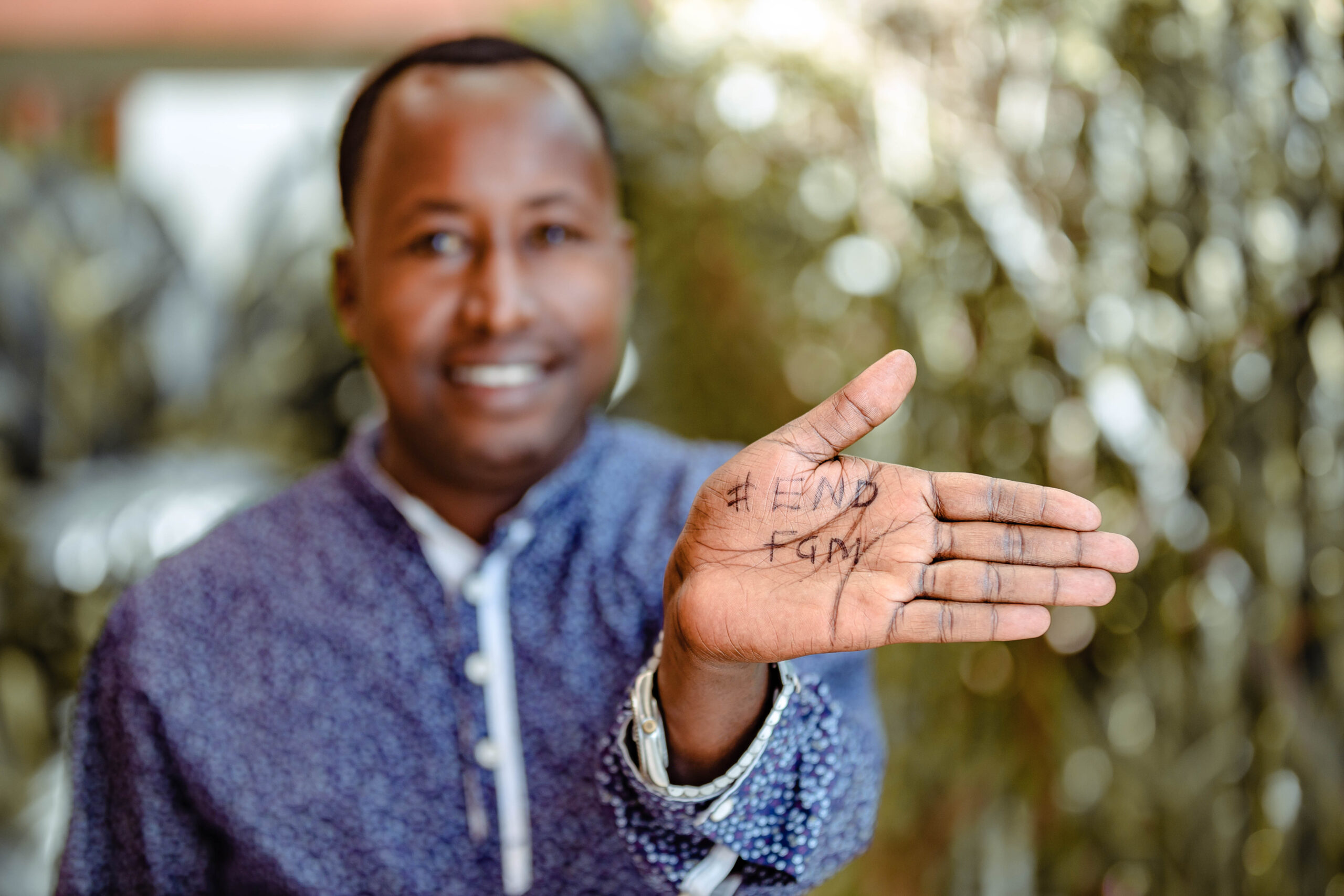

Meet Ibrahim Ibrahim ole Kinwaa, a #NoMoreViolence Champion from Tanzania:
“I’m Ibrahim, I’m 39 and from Tanzania’s Tanga region. I live in a small rural town with my wife and one child as well as my sister, who is in secondary school, and my brother, who is in college. Because of COVID-19, I have been at home for a long time, but my wife and I sometimes have to leave the house for work.
When I return, I do not have contact with anyone until I change my clothes and take a shower. I also have family in rural areas, but I am afraid to visit them because I am more likely to catch the virus than they are. I mostly sit at home like the others”.
What work do you do with Amref Heath Africa?
“I finished university in 2016 – the same year the government changed the law to forbid girls to return to school once they become pregnant – and joined Amref in 2017. During my four years working with on the Elimisha project, I have focused on ending FGM and all violence against girls and women along with SRHR, advocacy, and community sensitisation work. Last year, I became an official Pan-African Champion to end FGM”.
How has COVID-19 affected your area, especially in terms of GBV?
“Many things have changed. We are not allowed to move around freely, and as a result, our Masai community is facing many challenges”.
How has COVID-19 affected you and your work with women and girls?
“Many people, especially those in rural areas, still do not know about COVID-19 – they walk around without masks and often do not practice social distancing. Awareness forums are one of our best tools for spreading information in our communities, but right now, we cannot use them. We also cannot visit rural areas to explain how to protect girls.
Instead, we are making a plan to reach out to communities using the radio. Starting on June 15, I will begin a live show in the local area that will address the importance of protecting girls during COVID-19. We will be addressing all government authorities and local traditional leaders about the issues girls face – such as forced marriage, pregnancies, or FGM – while schools are closed.”
What drives you and the outreach work that you do?
“Young men also have a rite of passage – I was circumcised as I was going into secondary school on the very same day as my youngest sister, who was 12, was cut. It did not go well for her, and she was losing a great amount of blood and nearly died. I felt helpless because, in my condition, I could not help her.
After this rite of passage, she was married off without alternatives. I thought to myself when I finish school, I will make it my mission to protect girls from violence like this. I was massively influenced by my sister getting the cut right before my eyes – I saw how she suffered.”
Achuman Emoni stretches her hands, illustrating the vast distance she has travelled to reach the…
During a session held at Africa Health Agenda International Conference in Kigali, Rwanda, on 4th…
Amref Health Africa, in collaboration with the Turkana County Department of Health Services, introduced the…
Amref Health Africa, in collaboration with the Turkana County Department of Health Services, introduced the…
Over the past six years, Amref Health Africa has positioned itself as a leading voice…
Africa has made significant strides in advocating for health research and development, yet gaps in…